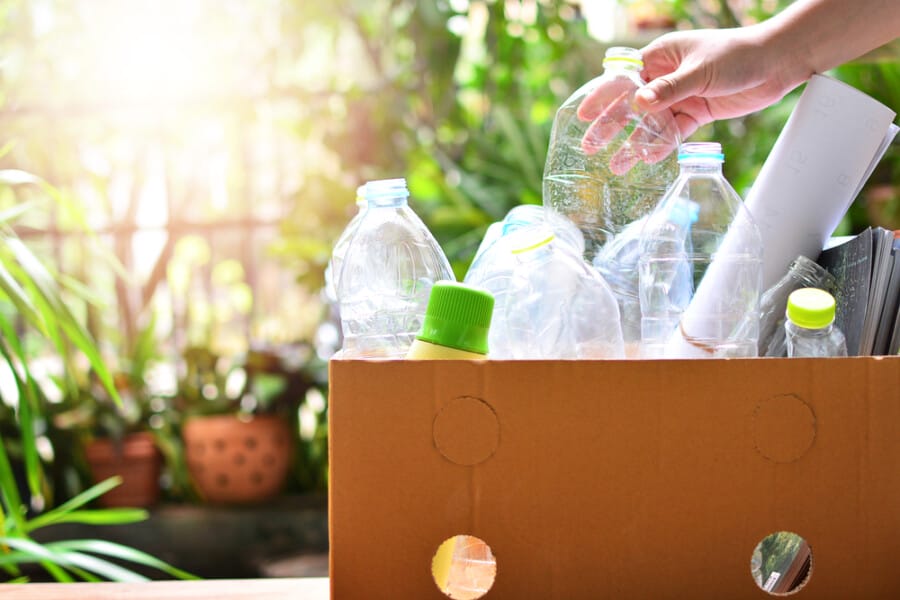Exploring The Health Benefits Of Plastic Recycling
Plastic recycling plays a crucial role in improving human and environmental health. Recycling companies play a vital role in taking, sorting, processing, and repurposing recycled plastic, which has far-reaching benefits. Picture a world without overflowing landfills emitting toxic fumes and causing air pollution.
One of the positive outcomes of plastic recycling is the reduction of single-use plastic bottles ending up in local waterways and breaking down into harmful microplastics that can contaminate the food chain. While global leaders focus on healing the Earth, let’s not overlook the direct benefits that plastic recycling offers to human health, particularly for women.
The Health Risks Posed by Plastic Waste
Plastic waste poses a variety of health risks rather than just one specific issue. It is versatile and pervasive, impacting the health of individuals in multiple ways. Studies have found harmful chemicals such as bisphenol A (BPA) present in 93% of urine samples tested in individuals aged six and above. The leaching of chemicals like BPA from coated packaging, such as takeaway containers and canned food, into the food chain is a concerning issue.
To mitigate exposure to these harmful substances, it is crucial to educate oneself, read safety labels to avoid microwaving certain products, and opt for items like baby bottles that are free from harmful chemicals like BPA. Failure to do so can lead to various health issues stemming from plastic waste, including the following:
- Increased transmission of infectious diseases due to more breeding grounds created by plastic waste.
- Higher risk of fertility issues and polycystic ovary syndrome (PCOS) in women.
- Reduced nutrient content in food.
- Potential increased risk of cancer.
- Elevated stress and anxiety levels.
- Greater susceptibility to cardiovascular disease.
Plastic waste finds its way into the human body through food and water, a process known as trophic transfer. Fish and other animals ingest plastic waste, leading to the presence of microplastics in the human diet. Additionally, plastic pollutants like per- and poly-fluoroalkyl substances (PFAS) contaminate water sources, making contact with humans. Research shows that PFAS was detected in 89% of France’s water samples.
How Plastic Recycling Can Mitigate Health Risks
The key to reducing these health risks lies in removing plastic waste from the environment. By actively recycling plastic, humans can minimize the chances of harmful chemicals and microplastics entering their bodies. Recycling acts as a preventive measure by extracting plastic waste from water bodies before it can be consumed by aquatic life or promoting the removal of harmful substances during the recycling process.
Common applications of recycled plastic include:
- Packaging containing post-consumer recycled (PCR) materials, such as food containers.
- Synthetic textiles, shoes, and apparel.
- Kitchenware and utensils.
- Cosmetics bottles and containers.
- Pet toys.
- Yoga mats.
- Technological devices like e-readers and record players.
These recycled products contribute to reducing greenhouse gas emissions, thereby promoting a healthier atmosphere and protecting human skin from harmful UV rays. Plastic production heavily relies on fossil fuels, resulting in environmental pollution. By decreasing dependence on oil, various health benefits can be achieved, including improved air quality and better wastewater treatment.
Challenges and Opportunities in Plastic Recycling
Are humans equipped with the necessary resources and infrastructure for efficient plastic recycling on a large scale? Accessibility remains a significant challenge in the sector, as plastic constitutes only 4.47% of recycled materials. Cross-contamination is another issue, particularly concerning the rapid spread of microscopic bacteria or particles between surfaces.
It is crucial for environmental advocates and policymakers to advocate for national regulatory changes to enhance plastic recycling processes. Legislative efforts could lead to increased investments in recycling infrastructure, particularly with a focus on public health. Implementing bans on unnecessary plastic products, such as single-use shopping bags, could further boost recycling rates by enhancing efficiency and availability, even in rural areas.
Past successful initiatives have shaped perceptions of plastic consumption, such as deposit and return schemes that incentivize consumers to return plastic products for recycling. Similarly, proper categorization of plastic waste, as seen in Kamikatsu, Japan, where recyclables are separated into 45 categories, can lead to near-zero-waste practices in a community.
Promoting Longevity Through Plastic Recycling
Plastic recycling plays a crucial role in enhancing human health by reducing the risk of microplastic ingestion, long-term health complications, and associated stress. Though the primary focus of recycling is environmental well-being, humans can only benefit from a cleaner environment if they are in good health.
Given the detrimental effects of plastic waste, there is an urgent need for widespread adoption of plastic recycling practices. It is essential for everyone to show interest in advancing recycling efforts while actively reducing their plastic consumption habits.
















